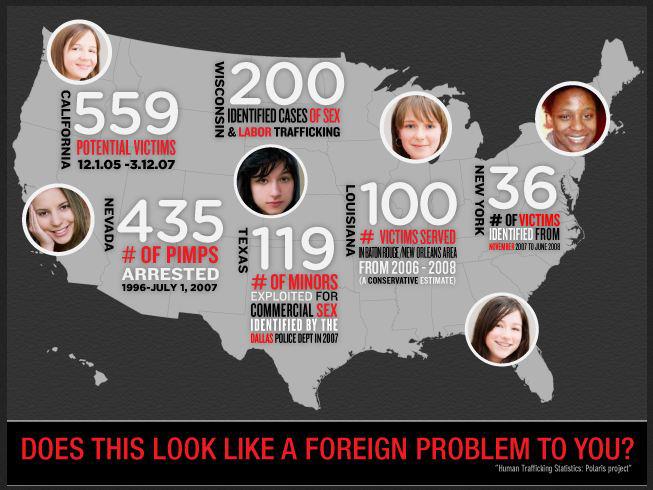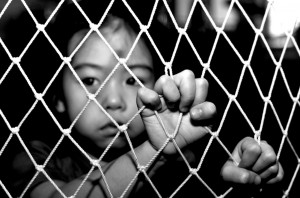Just ask the folks from Convenant House. They’ve put together a campaign called Abolish Child Trafficking. The USCCB is dedicated to fighting this scourge as well.
Timothy Dalrymple shares an interview about efforts to stop this blight timed for what has been designated as a National Weekend of Prayer focused on this issue by Christians.
A number of Christian organizations — mostly, but not exclusively, evangelical — have designated this weekend the National Weekend of Prayer to Abolish Slavery and Trafficking. Its stated purpose is “to mobilize prayer in America and to encourage awareness of the issue of human trafficking which is correctly called modern day slavery.” Reverend Samuel Rodriguez, head of the National Hispanic Christian Leadership Conference (Hispanic Evangelical Association), is Honorary Co-Chair of the event. Erik Campano spoke to him for Patheos.
What is the National Weekend of Prayer to Abolish Slavery and Trafficking?
It is a national effort of globalization and messaging, to help change the optics: to basically engage the Christian community in prayerful advocacy to end human slavery — sex trafficking — in the 21st century.
The church of Jesus Christ would take the lead in serving as an advocate to end human slavery in the spirit of Wilberforce, in the same emancipation spirit that we saw in the abolitionist movement in the 1800s, in the spirit of Dr. King — that’s what the church is doing.
In other words, what you’re calling for is a broad-based, mass evangelical movement to tackle the issue of human trafficking.
It’s critical here that the term movement is exactly what we’re looking for. It’s not just top-down leaders speaking about a subject matter. It’s grass-roots, from the bottom up and the top down.
Can you give us a creative idea of what practically you would expect evangelical Christians in the United States to do to combat trafficking?
We’re calling upon every single evangelical church in America this Sunday to designate prayer before the presence of the Lord to end trafficking. Every pastor will tell their parishioners: this week, we want you to call members of Congress in your district, on the House side and the Senate side, and tell them that you want them to make the end of human trafficking, of sex trafficking, a priority.
In social media, we’re getting young people to push via Facebook, via YouTube, via Instagram, how important this subject matter is.
One of the greatest lacks right now is providing shelter and homes for the individuals. Once you have this 15-year-old, where do they go? And we’re asking evangelical churches if they could provide something like the battered women’s shelters that were created in the 70s and 80s.
In 2000 the United States passed the Trafficking Victims Protection Act, and then President Bush made it, at least rhetorically, one of his most important human rights issues. President Obama has also spoken about it. Do you feel that the federal government is still not doing enough?
While I commend in part President Bush and President Obama for their efforts, it’s more rhetoric than action. We’re seeing very little legislative action. We still have policies in place that punish, in a de facto manner, these 16, 15, 14-year-olds that are being sold. They’re basically regarded as prostitutes, when, in essence, they are slaves.
The federal government is already putting tens of millions of dollars into anti-trafficking agencies. Do you expect them to increase that budget? Or do you feel that these agencies are not doing their work properly?
I think these agencies have a good heart. I do believe that other issues are taking priority. It has become number 10 on the list of 12 things to do. We understand that resources are federally allocated. We understand that on a rhetorical basis, and even on a legislative basis, there are policies in place. Nonetheless, implementation is not taking place at the level it should be. I personally do not believe that we have achieved a collective American awareness of the issue.
Learn more about human trafficking, and remember the victims of this egregious crime in your prayers.












